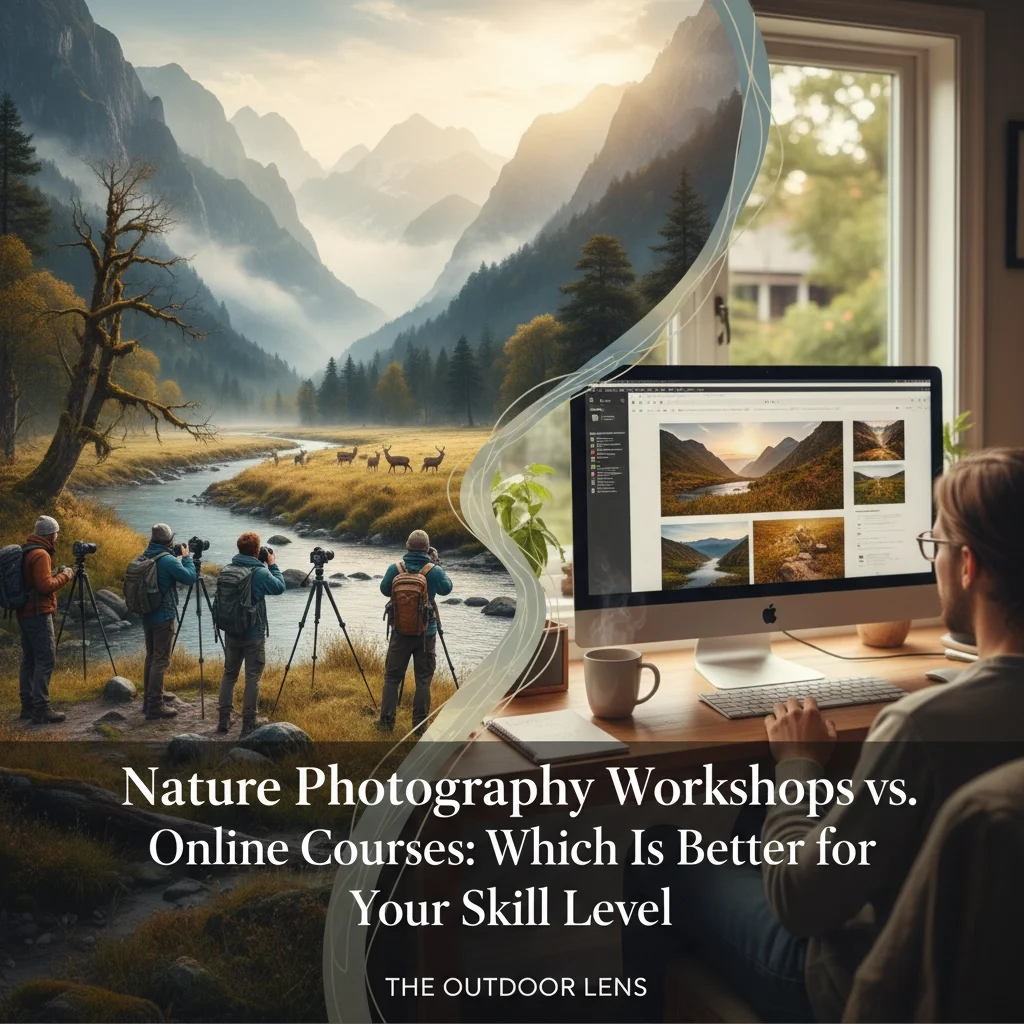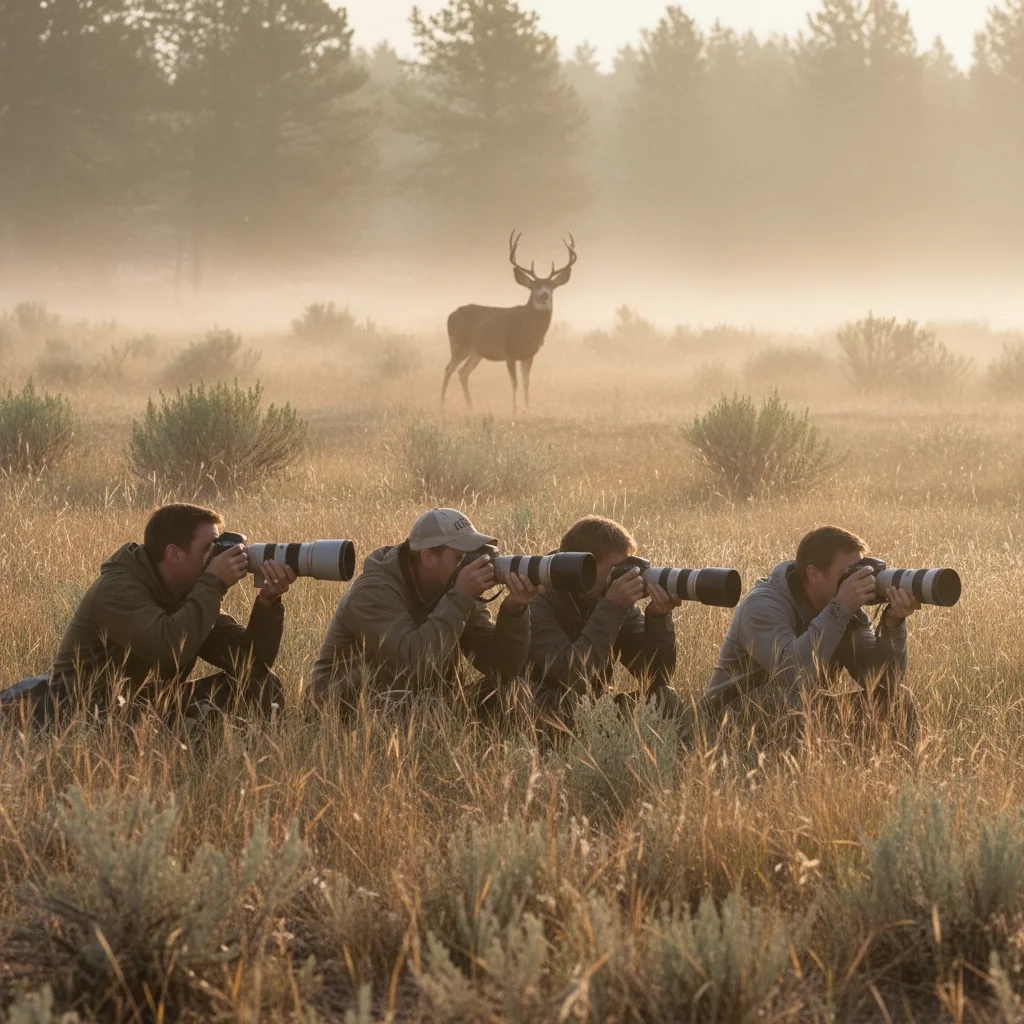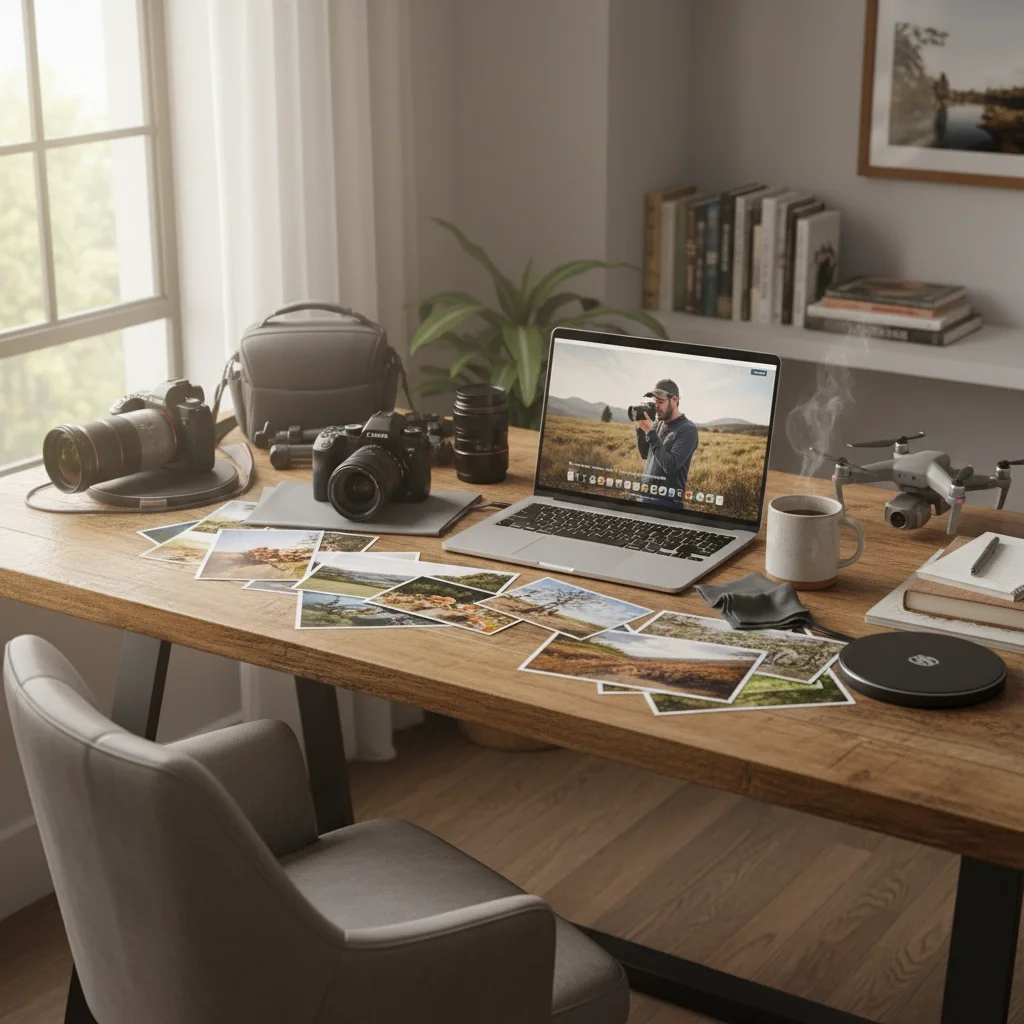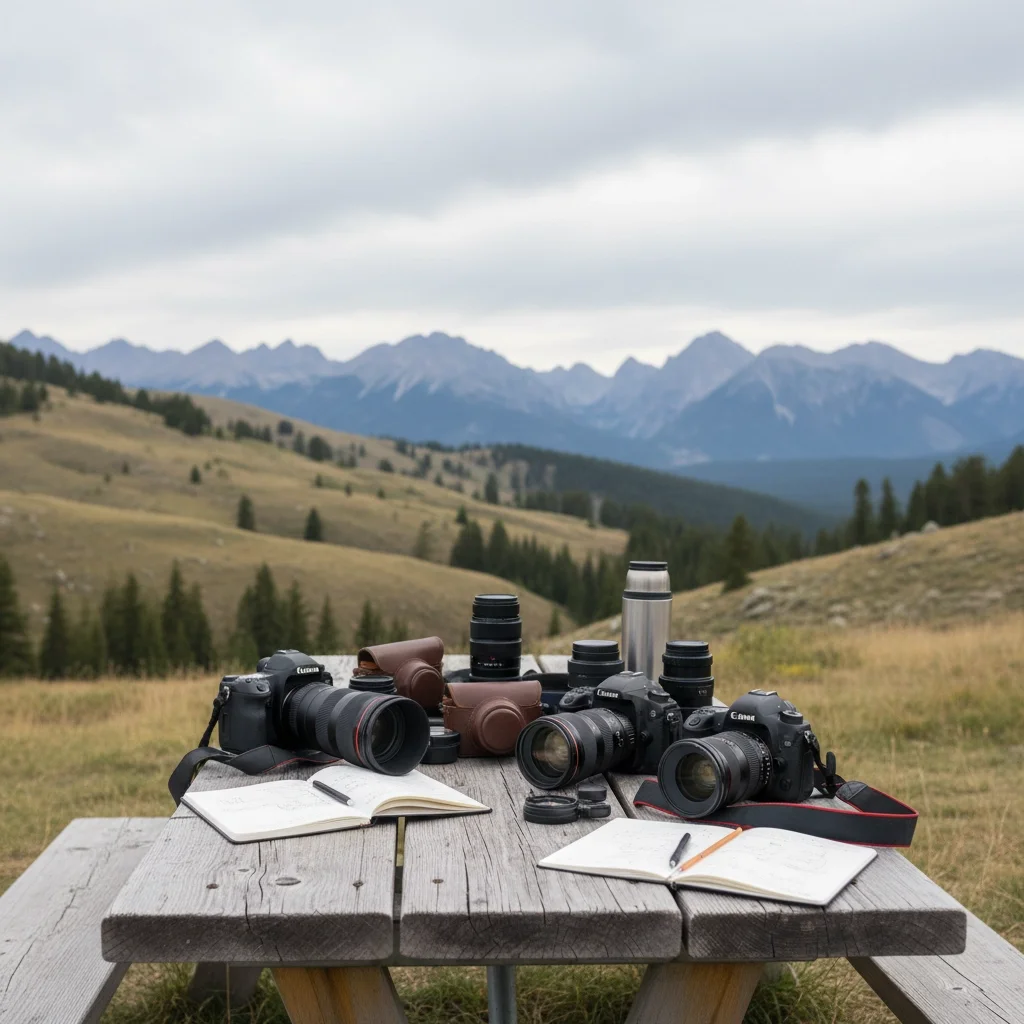Nature Photography Workshops vs. Online Courses
Choosing between nature photography workshops and online courses can feel overwhelming when you're eager to improve your skills. Both options offer valuable learning experiences, but which one will actually move the needle for your photography journey? The answer depends entirely on your current skill level, learning style, and specific goals.
After years of leading photography workshops and watching students transform their skills, we've seen firsthand how different approaches work for different people. Let's break down everything you need to know to make the smartest choice for your photography education.
The Power of Hands-On Nature Photography Workshops
Real-World Learning That sticks.
There's something magical about learning photography in the field with an experienced instructor by your side. Nature photography workshops provide an immersive experience where you're not just reading about techniques: you're applying them in real-time with immediate feedback.
When you're standing in front of a breathtaking landscape or tracking wildlife, workshops offer:
• Instant problem-solving: Your instructor can spot when your composition needs tweaking or when your settings aren't quite right for the conditions
• Location expertise: Learn the best spots, optimal timing, and local knowledge that takes years to develop on your own
• Equipment guidance: Get hands-on help with your specific camera and lens combination
• Creative inspiration: Watch how professional photographers approach the same scene you're shooting
The Community Advantage
One of the biggest benefits we see in our workshops is the photography community that naturally forms. You're learning alongside other passionate photographers, sharing tips, and building lasting connections. This peer learning often continues long after the workshop ends through social media groups and photo sharing.
Skill Development Acceleration
Workshop participants typically see dramatic improvement in a short time because they're getting concentrated, focused instruction. Instead of struggling alone with technical challenges, you have an expert guide helping you navigate everything from manual mode settings to advanced composition techniques.
Online Photography Courses: Flexible Learning on Your Terms
Learn at Your Own Pace
Online courses shine when it comes to flexibility. You can revisit difficult concepts, pause to practice, and learn during whatever hours work best for your schedule. This makes them particularly appealing for busy professionals or parents who can't commit to multi-day workshop schedules.
The advantages of online learning include:
• Cost-effective education: Generally much more affordable than in-person workshops
• Comprehensive coverage: Many online courses cover broader topics in depth
• Lifetime access: Most courses let you return to material whenever you need a refresher
• Specialized focus: Easy to find courses targeting specific skills like bird photography or editing techniques
Perfect for Technical Skills
Online courses excel at teaching technical foundations like understanding exposure, mastering editing software, and learning camera mechanics. The ability to watch demonstrations multiple times and follow along at your own speed makes complex concepts more digestible.
Comparing Learning Approaches: What Works Best for You?
Choosing Based on Your Photography Skill Level
Complete Beginners: Start Smart
If you're brand new to photography, we recommend starting with a foundational online course to learn camera basics, then transitioning to workshops once you're comfortable with fundamental concepts. This approach gives you the best value for your education investment.
Start online to master:
• Camera settings and exposure triangle
• Basic composition rules
• Understanding different shooting modes
• File management and basic editing
Once you've got these foundations solid, you'll get exponentially more value from a hands-on workshop because you can focus on artistic development rather than struggling with technical basics.
Intermediate Photographers: Workshop Time
This is the sweet spot for nature photography workshops! You understand your camera settings and composition basics, so you're ready to tackle more advanced challenges like:
• Wildlife photography field techniques
• Advanced composition and storytelling
• Working with challenging lighting conditions
• Species-specific shooting strategies
At this level, the personalized feedback and location expertise from workshops becomes incredibly valuable. You're not just learning techniques: you're refining your artistic vision and developing your unique photographic style.
Advanced Photographers: Strategic Choices
Advanced photographers benefit most from specialized workshops focused on specific genres or challenging locations. Think Costa Rica wildlife photography tours , Fall in Caddo lake or a Private lesson
For technical skills like advanced editing or business development, online courses often provide better value and deeper coverage than workshops.
Making the Most of Your Investment
Research Before You Commit
Whether choosing workshops or online courses, do your homework:
• Check instructor credentials: Look at their portfolio, teaching experience, and student testimonials
• Match content to your goals: Ensure the curriculum aligns with what you want to learn
• Consider your learning style: Do you learn better through hands-on practice or theoretical study?
• Assess time commitment: Be realistic about what you can dedicate to learning
Combine Both Approaches
Many successful nature photographers use hybrid learning: online courses for technical skills and workshops for field experience. This combination often produces the fastest skill development and most well-rounded education.
The Bottom Line: Your Photography Journey
The truth is, both workshops and online courses have their place in your photography education journey. The key is choosing the right approach for your current skill level and immediate goals.
Choose workshops if you:
• Want immediate, personalized feedback
• Learn best through hands-on experience
• Have specific location or species interests
• Value community learning and networking
• Can commit to intensive learning periods
Choose online courses if you:
• Need flexible scheduling
• Want to master technical foundations first
• Have budget constraints
• Prefer learning at your own pace
• Need specialized technical skills
Remember, your photography education doesn't have to be an either-or decision. The most successful photographers we know combine multiple learning approaches throughout their journey, always staying curious and open to new ways of seeing the world through their lens.
Ready to take your nature photography to the next level? Whether you choose workshops, online courses, or both, the most important step is taking action. Your best photographs are waiting just beyond your current comfort zone( let's help you capture them!)





